#bronisław malinowski
Explore tagged Tumblr posts
Text
Robbie Shilliam - Social Death and Rastafari Reason
#social death#orlando patterson#rhetoric#blackness#reason#bronisław malinowski#rastafari#anthropology
6 notes
·
View notes
Text
who wants me

#spedzilam nad tym 5 minut koledzy#ciezko pracuje aby dostarczyć kontent dla fanów niebezpiecznych dzentelmenow#niebezpieczni dżentelmeni#dangerous men#polishposting#polblr#tadeusz boy-żeleński#tadeusz żeleński#stanisław ignacy witkiewicz#witkacy#bronisław malinowski#joseph conrad
47 notes
·
View notes
Text
UWAGA ‼️ JUTRO 2.11 "Niebezpieczni dżentelmeni" będą lecieć w telewizji na TVN o 21:15

2 notes
·
View notes
Text
Cults & Society: The Petersons and the American Dream.

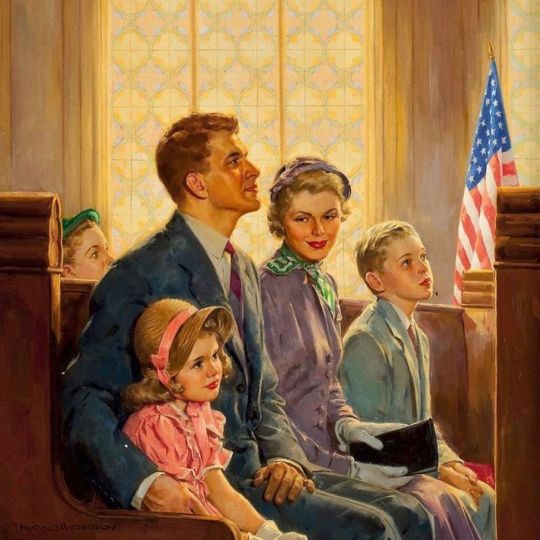
I've never seen anyone in the fandom attempt to discuss this, especially the books. I wouldn't blame you if you took the Aaron trilogy at face value, and to an extent, I only know slightly what the Forest Protector Society cult is on a surface level.
But as someone who is researching on HN1/HN2's inspirations, I cannot ignore Hello Neighbour's (possibly unintentional) symbolism to this, as it was a occurring theme in those media.
So we'll start with very surface-level stuff:
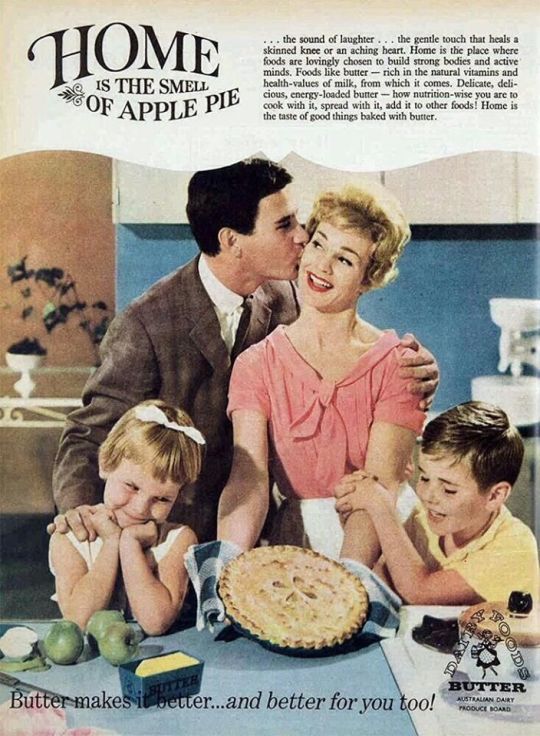

Just like the top of those images, next to the Petersons: they are the poster children of the American suburb's dreams that were advertised back in the '40s to '60s:
The Husband, Wife, and their two kids that was usually a son and daughter.
Even to the tee of the kids looking like their gendered parents.
This is also very important as everyone outside the Petersons is actually an unconventional household:
Nicky despite having both parents, Luanne has never been a traditional homemaker, the closest to that role is Jay (Very well aware Diane is a school teacher too but that was around the end of the Aaron trilogy not the start of it and I also have a comparison between those two). Usually, that kind of dynamic was unheard of and frowned upon.
The same applies to the Esposito and Yis are both single parents specifically on the widow and widower side, usually, stepparents would fill the role of that absent-gendered parent so they could go back to that very rigid gender role they were thrust upon.
Though the Bales also have both parents, there are few depictions of families with just a daughter. As having a son to carry family last names was more thrust upon the society.
Stay with me, so this is no surprise to anybody as much as those pictures depict a happy idyllic family in most depictions of media of this family structure (Especially HN's inspo media: Twin Peaks) They HEAVILY critique how this family structure is rigid if not hurting the individual rather than helping especially when the country at the time really pushed this very heavily: woman was forced to be financially depended on her husband and the man having zero help emotionally but to keep providing the family.
And if things took the worst like let's say a domestic dispute it was only till the 1970s that divorce became more accessible so these people were stuck in these marriages.
And for children, as much Bronisław Malinowski saw the good of this family structure it can take the worse if children take the brunt of the abuse as that period had a "Children should be seen not heard." mentality which you can understand how this will fucked the children up for life.
"Okay yeah they are essentially the American Family but what does this have to do with the Forest Protectors?"
What was the biggest goal of the cult?

Fortune, good luck, a dream if you say... And well we know what the American dream represents but this is the reward for these kinds of Family Values....

Despite that by the end of the Aaron trilogy, Theodore came out the husk of a man he once was, maybe worse. For Ted, he was ruined by the cult and destroyed his image of a renowned theme park designer for the kids, real life?
Breadwinner men like Ted end up chasing that dream, some achieve it and definitely reap the rewards... Some never, but it was something to "look forward to" while those who made the movement made sure they still kept their condition so they can exploit that for the rest of their waking lives till their children is next and they'll be exploited the same way.
And if you have nobody to take this out on, who else but the family you come back to every day?
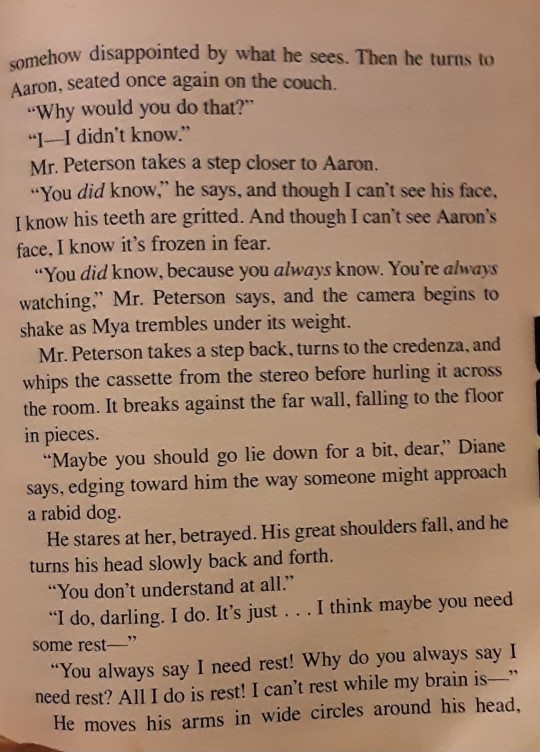
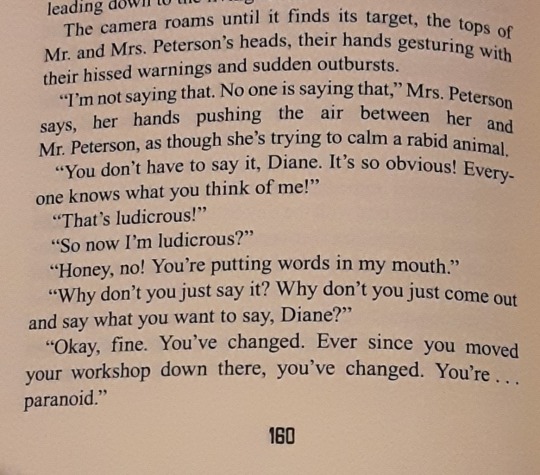
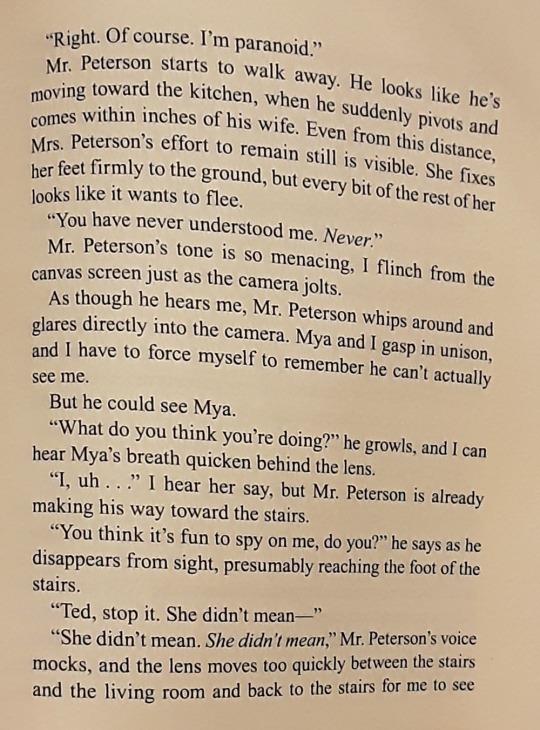
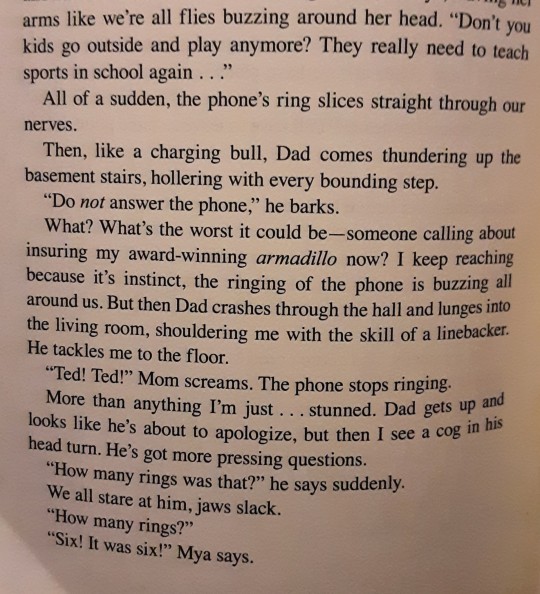
Now I don't think in general the nuclear family is a bad dynamic there is no perfect family dynamic just the one that works the best, but for HN and what I believe is the criticism of conservatism and how it affects the generation after that, it is something to be very introspective.
Someday I'll do Diane and the kids cause this will get longer than it should be as well as generational trauma and what I believe HN1 was all about which was breaking the cycle (despite it not coming from the son but the son's friend but uh... We got some terrible news for the son).
#hello neighbor#media analysis#The Petersons#theodore peterson#diane peterson#aaron peterson#mya peterson#txt post#long post
62 notes
·
View notes
Text
If you're going to watch a Polish movie on Netflix, please watch this one

The Dangerous Gentlemen is a story about four Polish historical figures - artist Stanisław Ignacy Witkiewicz (known as Witkacy), anthropologist Bronisław Malinowski, writer Joseph Conrad and doctor Tadeusz Żeleński - discovering a dead body after partying hard in Zakopane.
On the one hand we have standard mystery of "What happened last night? Why there is a dead body in our house? Why two guys want to get Żeleński?", and on the other hand, we have a story of Taduesz Żeleński exeperiencing burn-out in his medical profession and going on a quest to discover himself as a writer.
The movie is a comedy and I love it, because it's fast-paced, doesn't rely on toilet humor (much) and it makes fun of Polish history (Piłsudski is really one of the best things in this movie). It has right balance of comedy and seriousness and I think that it's perfect watch for Polish Independance Day.
110 notes
·
View notes
Text
A savage woman 🍊
Ethnographer Bronisław Malinowski, in his monograph The Sexual Life of Savages in North-Western Melanesia, published in 1929, which initiated the social anthropology known today, describes the erotic fun the natives of the Trobriand Islands.
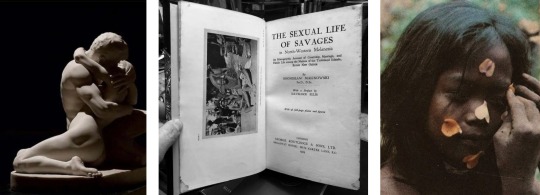
It is called kamali and involves the girl inflicting bodily pain on her partner. For a boy, it is an expression of passion, temperament and love, which can be compared to the role played by a kiss in Western cultures. A girl in love can hurt her beloved by scratching, beating, biting or using a sharp instrument, and he happily accepts these attacks and is proud of his wounds.

Erotic pain infliction does not only occur early in the pairing of young Trobrianders. When the love caresses become more passionate, the couple freely begins to use their teeth to bite each other's lips, bite the cheek, or pinch the nose and chin. Drinking blood from mutilated lips, even pulling out hair and nibbling at eyelashes (also catching each other's lice and eating them!) is part of intimate, unwitnessed lovemaking and a mutual expression of passion.

What is worth noting is that the woman, based on Malinowski's observations of wounds on men's bodies, is more active when exchanging painful caresses.
(The Sexual Life of Savages in North-Western Melanesia, B. Malinowski, New York 1929, pp. 252, 256-257, 333)
While studying this passage, I began to wonder if all women bite more often and are more bloodthirsty? The 1953 Kinsey Report found that men and women were almost equally sexually aroused by being bitten (55% of women and 50% of men had an erotic reaction after being bitten by their partner). I also came across information that Marilyn Monroe was known to draw blood by biting the lips of her partners. Again, I can't confirm this, so what do you think?
#kinsey report#life of savages#savage woman#anthropology#anthropomorphic#ethnography#1920s#love life#circa 1929#marilyn monroe
3 notes
·
View notes
Text
Tensions anthropologiques..
Ce qui m'a tant passionné dans la tradition anthropologique, c'est la possibilité de voyager à travers les récits d'ethnographes et d'ethnologues, et de m'immerger dans leurs observations participantes.
Malgré les débats entourant cette notion d'immersion et son potentiel de manipulation, notamment les critiques adressées à Bronisław Malinowski (1884-1942) pour sa supposée complicité avec la supériorité coloniale, ses travaux restent essentiels pour comprendre la circulation du Kula et explorer la sexualité dans les îles Trobriands. Le grand mérite de Malinowski est d'avoir fait voler en éclats l'universalité du complexe d'Œdipe freudien.
De même, le livre "Coming of Age in Samoa" de Margaret Mead (1901-1978) m'a transporté dans le monde des adolescentes samoanes, qui, selon ses recherches, connaissent une période de transition relativement calme et sans conflit, remettant ainsi en question les normes occidentales de l'adolescence tumultueuse. Plus tard, ces travaux ont été remis en question et elle s'est fait accuser de vouloir prêcher dans sa paroisse en manipulant les jeunes samoanes pour qu'elles disent ce qu'elle voulait entendre.
Or il en est ainsi dans la tradition anthropologique, avec ces écoles fondatrices, de l'évolutionnisme au diffusionnisme, du fonctionnalisme au structuralisme, sans oublier le culturalisme. Des travaux et des contre-travaux émergent, dans lesquels le travail de terrain est de moins en moins à l'abri de la modernisation et de l'occidentalisation. Cependant, le terrain demeure propice à un effort continu pour élargir l'universalisme en le diversifiant, et pour surmonter le fossé entre l'anthropologie et l'écologie, en offrant de nouvelles approches moins rigides quant aux dualités entre nature et culture, histoire et nature, histoire et culture.
Il en va ainsi des thèses exposées dans "Patterns of Culture" de Ruth Benedict (1887-1948), qui examine les différences culturelles à travers une comparaison de trois cultures distinctes (les Zuni, les Dobu et les Kwakiutl). Elles ont défié toute conviction envers l'universalisme hérité des Lumières.
Par contre, les travaux de Claude Lévi-Strauss (1908-2009) sur les Bororo, une tribu amérindienne vivant en Amazonie, ont permis d'explorer leur organisation sociale, leur système de parenté, leurs pratiques religieuses et leurs structures sociales. CLS a également réalisé des recherches parmi les Nambikwara, un groupe indigène du Brésil, portant sur leur organisation sociale, leur cosmologie, leur système de parenté et leur art.
Mais ce qui me retient chez lui, c'est une fois de plus cette question de la manipulation, cette fois-ci non plus la manipulation de la société étudiée par l'observateur participant qui y intervient, mais l'accusation lancée par CLS à Marcel Mauss (1872-1950) concernant l'explication de l'énigme du don. Selon CLS, Mauss s'est complètement laissé berner par le sorcier de la tribu, qui prétendait que le don circulait en raison d'une mystérieuse force magique présente dans l'objet offert, récupéré et renvoyé. Lévi-Strauss reproche à Mauss de se laisser mystifier par les magiciens indigènes qui, chaque fois qu'ils doivent justifier des événements qui leur semblent inexplicables, font appel au "mana" comme à un signifiant flottant qui entrave une compréhension plausible de la chose.
Après tout, je parle de l'anthropologie comme d'une tradition, tout comme de la philosophie, de la sociologie, et même du marxisme, bien que je ne sache pas jusqu'à quand je vais continuer à coexister avec cette notion de tradition savante. Cependant, je préfère faire une distinction entre les "traditions savantes" plutôt qu'entre les "disciplines" ou entre les "discours".
Eh bien, dans cette tradition anthropologique, le grand mérite a été de mettre en exergue mais aussi en tension la radicalité des échanges entre les humains.Ainsi, le tournant levi-straussien a consisté à interpréter l'interdiction de l'inceste comme un mécanisme de don. Je te donne ma sœur, je reçois ta sœur. En revanche, le mérite de Maurice Godelier (1934 - ) a été de prendre ses distances par rapport au pouvoir absolu de l'échange en anthropologie, au danger de tout ramener à un phénomène d'échange.
Après tout, c'est ce qu'on appelle le marxisme : la détermination des relations d'échange par les relations de production, par les conditions de reproduction d'un groupe, d'une collectivité, d'une société, de l'humanité. En tout cas, ou du moins ne pas réduire la complexité de la reproduction sociale aux seuls paradigmes de l'echange.
Actuellement, je suis en train de lire le dernier livre de Godelier , intitulé "Quand l'Occident s'empare du monde XVe - XXIe siècle : Peut-on se moderniser sans s'occidentaliser ?". Dans cet ouvrage, Godelier explore son parcours d'anthropologue en l'articulant avec l'histoire globale, tout en proposant des réflexions sur l'avenir, y compris à long terme. Il s'agit d'une œuvre d'une remarquable fraîcheur mais aussi d'une sage vieillesse. L'auteur a 89 ans.
Godelier, lui aussi, a effectué des travaux sur le terrain dans des contrées lointaines. Dans tous ses livres, il revisite son travail de terrain chez les Baruya, une tribu papoue de Nouvelle-Guinée. Là-bas, il a mis en évidence les rituels et les pratiques associés à la construction de la masculinité et à l'exercice du pouvoir masculin, ainsi que les conséquences de cette domination sur les femmes et les relations de genre.
Il a découvert chez les Baruya une société sans classe, quoique fortement inégalitaire. Il a articulé les processus de production avec l'échange. S'est arrêté notamment devant ce qu'il désigne comme le "grand homme" de la tribu. Soit dit en passant, la domination masculine chez les Baruya nécessitait une séparation des garçons et des filles entre 9 et 20 ans, ainsi que leur entraînement dans la forêt aux côtés des adultes, avant que le garçon atteigne l'âge de 20 ans et ne soit considéré comme mature, prêt à choper une nana au sein de sa tribu.
Je n'ai jamais pu me restreindre à une seule tradition savante. Je préfère plutôt être un nomade, évoluant entre l'anthropologie, la philosophie, la philosophie politique, l'histoire des religions.
En revanche, l'anthropologie, loin de se limiter à des collectivités isolées ou en repli par rapport aux sociétés plus larges, ou ensuite par rapport aux vagues successives de la modernisation, de la capitalisation, de la déforestation, a considérablement enrichi la théorie critique du capitalisme et a étudié les répercussions de la modernisation, de la bureaucratisation, de la marchandisation, de la monétarisation puis de la financiarisation, dans les cultures les plus éloignées et les plus diverses.
En même temps, elle s'est également penchée sur les retours inestimés du tribalisme, je dirais même du tribalisme trans-moderne, ainsi que sur la résilience différenciée du chamanisme et les modalités inépuisables du réenchantement du monde.
Non loin de la pertinence du perspectivisme amérindien de l'anthropologue brésilien Eduardo Viveiros de Castro (1951 - ), qui insiste que l'étude des peuples autochtones de l'Amazonie ne doit pas se limiter à l'exploration d'une culture, mais doit également inviter à une découverte d'une pensée profonde qui se renouvelle chez ces peuples sur le commun, la vie en communauté, et sur notre rapport à l'environnement. Ira-t-on jusqu'à chercher chez ces autochtones une "théorie critique" voire "révolutionnaire" alternative face à l'échec du marxisme? À un certain degré, oui, il est prudent de se contenter de cette approximation.
Ce qui m'intrigue également, c'est la transition qui s'opère dans le domaine de l'anthropologie, passant d'une complicité avec l'impérialisme et le racialisme euro-occidental à une approche visant à décoloniser la tradition anthropologique, pour ensuite s'attaquer à la décolonisation à grande échelle de ce qui reste encore à décoloniser dans ce monde.
Il est fascinant de noter que, curieusement, l'Union soviétique était très méfiante à l'égard de la sociologie, tandis qu'elle se montrait au contraire très accueillante envers l'anthropologie, qui conservait dans l'académie soviétique le nom d'ethnographie. L'ethnographie soviétique a apporté une contribution significative, notamment dans les études sur le nomadisme et le chamanisme. Malheureusement, ses découvertes restent souvent peu connues en dehors de l'ancien espace soviétique et en dehors de la langue russe.
Le fondement du regard ethnographique et anthropologique était en premier lieu l'ouvrage de Friedrich Engels (1820-1895), "L'Origine de la Famille, de la Propriété Privée et de l'État" (1884). Quoi qu'on puisse dire de ce livre qui est une compilation et une synthèse datant du XIXe siècle, puisqu'il prenait pour argent comptant le concept du communisme primitif et du matriarcat.
Plus tard dans ma vie, j'ai réalisé que Engels manifestait un intérêt particulier pour les caractéristiques spécifiques de chaque peuple, ce qui contrastait avec l'approche rigide basée sur les classes sociales. On retrouvait chez Engels un peu de l'approche des "Patterns" de Ruth Benedict. De plus, Marx et Engels ont abordé de manière complexe et changeante l'articulation et l'interaction entre l'analyse de classe et l'ethnicité.
Mais mettons de côté Marx et Engels pour le moment. Il est vrai que la tradition anthropologique était initialement étroitement liée à l'impérialisme, au colonialisme et à la théorie des races. Cependant, au fil du temps, elle s'est engagée dans un processus de décolonisation interne, ou du moins elle a vécu la décolonisation comme une épreuve interne, comme une tension créatrice, développant ainsi des outils d'exploration et d'inspiration qui ont contribué ou qui devrait contribuer à la théorie critique du capitalisme et de l'impérialisme.
Je dois avouer que je suis davantage attiré par cette perspective anthropologique au sein de la théorie critique, qui aborde l'impérialisme et le capitalisme, plutôt que par l'approche anti-néolibérale de la sociologie contemporaine qui me paraît assez mécanique.
Cependant, il est essentiel de distinguer les contributions anthropologiques qui enrichissent réellement la théorie critique de celles qui s'égarent dans un anti-capitalisme de type "new age"...
En revanche, je ne suis pas quitte avec l'autre retournement de situation dans la tradition anthropologique. Je fais allusion à la tendance à délaisser l'anthropologie du lointain pour privilégier l'anthropologie du proche, mettant ainsi l'accent sur l'étude ethnographique de sujets plus familiers, tels que l'épicier au bas de ton immeuble ou les liens de parenté dans ta propre famille.
Je ne suis pas en mesure de répudier tout un paradigme, mais je dois admettre que cela n'a pas le même impact sur moi que les récits sur les Brororo et les Baruya, par exemple.
Ce qui m'intrigue davantage, c'est la justification donnée à ce changement de perspective, passant du lointain au plus proche. On prétend souvent que cela évite de sombrer dans l'exotisme, mais je pense que ce n'est pas un argument convaincant. C'est un peu comme chercher des Baruya au Starbucks du coin.
En fait, je préfère un aller-retour entre l'anthropologie du lointain et du proche, mais surtout pas une anthropologie qui se limite à sa propre tribu.
Et que dire du monde d'aujourd'hui ? Dans ce monde qui semble se re-tribaliser, peut-être aurons-nous des tribus où chaque groupe aura son économiste tribal, son intellectuel organique tribal, son specialiste des RI tribal et son anthropologue tribal, à la place des magiciens d'autrefois.
0 notes
Photo




Stanisław Ignacy Witkiewicz, znany szerzej jako Witkacy, to jedna z najbardziej niezwykłych postaci w historii polskiej kultury. Był nie tylko pisarzem, ale także malarzem, filozofem, dramaturgiem i fotografem. Jego wszechstronny talent sprawił, że stał się ikoną awangardy artystycznej początku XX wieku.
Jego twórczość to wyjątkowa mieszanka szaleństwa i innowacji. Witkacy eksperymentował z formą i treścią, przekraczając granice tradycyjnych gatunków. W swoich dziełach często poruszał tematy egzystencjalne, badając ludzką naturę i kondycję współczesnego człowieka. Jego prace do dziś inspirują kolejne pokolenia artystów i miłośników sztuki.
Witkacy był blisko związany z wybitnymi postaciami swoich czasów, takimi jak kompozytor Karol Szymanowski czy antropolog Bronisław Malinowski. Te relacje miały znaczący wpływ na jego ��wiatopogląd i działalność twórczą. Wspólnie tworzyli intelektualne środowisko, które kształtowało kierunki rozwoju polskiej kultury tamtego okresu.
Pozostawił po sobie bogaty dorobek artystyczny, w tym liczne obrazy, dramaty i powieści. Jego najważniejsze dzieła, takie jak "Szewcy" czy "Pożegnanie jesieni", wciąż fascynują swoją aktualnością i głębią przekazu. Jego prace malarskie charakteryzują się unikatowym stylem i ekspresją, a fotografie dokumentują nie tylko otaczającą go rzeczywistość, ale także jego eksperymenty z formą i światłem.
Przywołajmy dziś jego niezapomniane dzieła i zanurzmy się w świecie jego nieskrępowanej wyobraźni! Witkacy pozostaje nieustającym źródłem inspiracji, a jego twórczość zachęca do poszukiwania nowych dróg wyrazu i zrozumienia otaczającego nas świata.
(fot. Wikipedia)
1 note
·
View note
Text
Sophia Dembowska-Römer o Zofia Romer, de soltera Dembowska (1885- Tartu-1972, Montreal) pintora estonia.

Nació en Tartu, era hija del médico Tadeusz Dembowski y su esposa Matylda. Creció en Lituania y Polonia.
En Lituania estudió pintura primero con Ivan Trutnev en Vilnius y luego con Roth y Shimon Holoszy en Cracovia, Polonia y Múnich, Alemania.

En 1903 y 1904 continuó sus estudios en París con el conocido retratista Jacques-Émile Blanche y el pintor histórico Luc-Olivier Merson. Completó su educación artística formal en Cracovia con Józef Siedlecki en el Museo Baraniecki.
Comenzó a vivir en la finca Tituvena.

De joven estuvo vinculada sentimentalmente con el etnólogo, y con el pintor y escritor,Bronisław Malinowski y Stanisław Ignacy Witkiewicz.

En 1911 se casó con Eugeniusz Romer, un terrateniente polaco rico e influyente en Lituania. Desempeñó un papel importante en el patrimonio artístico de Lituania. Tuvo cinco hijos.

A partir de 1943 se ganó la vida como retratista. Como resultado de su desplazamiento de su hogar durante la Segunda Guerra Mundial , en la segunda mitad de su vida vivió y creó en lugares tan diversos como Rusia, Teherán, El Cairo, Londres, Estados Unidos y Montreal, Canadá, donde murió.

Durante la Primera Guerra Mundial, ella y su familia fueron a Anensk (provincia de Vitebsk), luego regresaron a Tituveny.
No perdió contacto con Vilna: visitó a su madre allí, y se comunicó con artistas locales y pintó retratos de figuras públicas de Vilna, de la región y de la cultura.

Le encantaba pintar retratos de sus seres queridos y familiares, naturalezas muertas. Participó activamente en exposiciones en Lituania y en el extranjero.
En 1941 se exilió con su marido.
En 1942 recibió permiso para mudarse a Kuibyshev. En 1943, después de haber enterrado a su marido allí, fue evacuada a Teherán con la embajada de Polonia.
De 1944 a 1949 vivió en Egipto y en Gran Bretaña, de 1950 a 1955.

Durante una prolífica carrera artística que duró casi 70 años y abarcó una variedad de medios, produjo alrededor de 5.000 obras, de las cuales al menos 1.200 están catalogadas.
Vivió en Canadá, se mudó a los Estados Unidos y finalmente regresó a Canadá, donde murió en 1972 en Montreal.

Su obra se encuentra en las colecciones de muchos museos de Europa, incluidos los museos estatales de Kaunas , Šiauliai , Telšiai , Kelmė y Vilnius, y el Museo Nacional de Varsovia , así como en numerosas colecciones privadas.

0 notes
Text
Anthropologist Bronisław Malinowski argued that magical beliefs and superstitious behaviors allow people to reduce the tension created by uncertainty and help fill the void of the unknown.
1 note
·
View note
Text

28 notes
·
View notes
Text
everybody gangsta until my girl showed up at the train station at 7am monday morning dressed like Bronisław Malinowski and I couldn't stop laughing meanwhile she still has no fucking idea who that is and old ladies thought I was bullying her (THAT OUTFIT SERVES CUNT IM TELLING YOU)
5 notes
·
View notes
Text

Walka (1921 - 1922)
Stanisław Ignacy Witkiewicz (Polish, 1885-1939)
Witkiewicz was reared at the family home in Zakopane. In accordance with his father's antipathy to the "servitude of the school," he was home-schooled and encouraged to develop his talents across a range of creative fields. Against his fathers wishes he studied at the Kraków Academy of Fine Arts with Józef Mehoffer and Jan Stanisławski.
Witkiewicz was close friends with composer Karol Szymanowski and, from childhood, with Bronisław Malinowski and Zofia Romer. Romer was romantically linked to both Bronisław Malinowski and Witkiewicz. He had a tumultuous affair with prominent actress Irena Solska who according to Anna Micińska is represented as the heroine Akne Montecalfi in his first novel, The 622 Downfalls of Bungo or The Demonic Woman, 1911. According to Micińska he also represented himself as the character Bungo and Malinowski as the Duke of Nevermore. The unfinished novel, which was not published until 1972, also describes erotic encounters between Bungo and the Duke of Nevermore. Taught wet plate photography by his father, it was during this period that he also began producing the intimate portrait photography for which he is known; producing striking portraits of his circle in Zakopane and many self-portraits.
In 1914 following a crisis in Witkiewicz's personal life due to the suicide of his fiancée Jadwiga Janczewska, for which he blamed himself, he was invited by Malinowski to act as draftsman and photographer on his anthropological expedition to the then Territory of Papua, by way of Ceylon and Australia. The venture was interrupted by the onset of World War I. After quarrelling with Malinowski in Australia, Witkiewicz who was by birth a subject of the Russian Empire, travelled to St Petersburg (then Petrograd) from Sydney and was commissioned as an officer in the Pavlovsky Regiment of the Imperial Russian Army. His ailing father, a Polish patriot, was deeply grieved by his son's decision and died in 1915 without seeing him again.
In July 1916 he was seriously wounded in the battle on Stokhid River in what is now Ukraine and was evacuated to St Petersburg where he witnessed the Russian Revolution. He claimed that he worked out his philosophical principles during an artillery barrage, and that when the Revolution broke out he was elected political commissar of his regiment. His later works would show his fear of social revolution and foreign invasion, often couched in absurdist language.
0 notes
Text
“ [G]li antichi Romani [...] distinguevano accuratamente l’uso erotico delle labbra da altri tipi di contatto labiale. Affettuoso, doveroso, rispettoso, fraterno, paterno, materno, amicale, conviviale, coniugale. E laddove noi abbiamo una sola parola per qualunque forma di bacio, loro ne avevano ben tre. Il basium, il savium e l’osculum. Il primo, sentenzia Isidoro di Siviglia, «lo darai alla moglie o al marito, il secondo alle donne di piacere, il terzo ai figli» (Perotti 2018, p. 83). Come ogni regola anche il teorema di Isidoro ha le sue eccezioni. La prima è il poeta Catullo, che manifesta il desiderio, torbido e torrido, che prova per Lesbia, la sua calda e infedele amante, chiedendole mille basia e poi altri mille, in un’escalation sempre piú hard. Ma c’era anche l’osculum sanctum, che si scambiavano i cristiani in segno di pace. E lo stesso gesto poteva degenerare nel cosiddetto osculum infame. Ovvero lo sbaciucchiamento che le streghe riservavano a Satana nel corso del Sabba. Insomma, baciare è un gesto che può assumere i significati piú diversi. Dalla tenerezza alla reverenza, dalla venerazione religiosa alla passione amorosa, dalla galanteria del baciamano al bacio socialista di Brežnev e Honecker. O a quello risorgimentale raffigurato nel celebre dipinto di Hayez, dove la coppietta allacciata sta per Cavour e Napoleone III. O ancora, all’omokissing tra Madonna e Britney Spears oppure tra Maradona e Caniggia. Fino alle manifestazioni piú estreme dell’appetito carnale. Dove il confine con il morso si fa labilissimo e un’espressione di uso comune come «ti mangerei di baci» diventa letterale, ritrovando tutta la sua oralità primaria, la voglia matta di divorare il partner. Deve averlo temuto la principessa africana corteggiata a lungo dal filosofo ed esploratore inglese William Winwood Reade, che un giorno tenta di baciarla, ma la ragazza scappa via piangendo. Perché interpreta l’approccio come un gesto da Hannibal Lecter. Del resto, basta aggiungere una c per trasformare Annibale in cannibale. Ma l’esempio piú estremo è quello raccontato dall’antropologo Bronisław Malinowski circa le effusioni erotiche tra gli abitanti delle isole Trobriand. In quell’arcipelago che si trova al largo dell’Australia, le coppie in amore si mordono fino a ferirsi le labbra, la lingua e le ciglia e arrivano, nell’estasi dei sensi, a strapparsi ciocche di capelli. Come dire, straziami ma di baci saziami. Proprio come in certi amplessi cinematografici recenti al cui confronto il bacio di Via col vento e perfino quelli di Casablanca e Notorius sembrano effusioni da educande. “
Elisabetta Moro, Marino Niola, Baciarsi, Giulio Einaudi editore (collana Vele), 2021 [Libro elettronico]
#Elisabetta Moro#Marino Niola#Baciarsi#saggistica#baci#antropologia culturale#saggi#letture#leggere#citazioni#Bronisław Malinowski#Isidoro di Siviglia#Brežnev#Honecker#antichità romane#Casablanca#Notorius#Hayez#passione#William Winwood Reade#isole Trobriand#omokissing#amore#Britney Spears#Madonna#Maradona#Caniggia#Cavour#Napoleone III#carnalità
13 notes
·
View notes
Text
Krytyka Margaret Mead
Raz na jakiś mam taki “wybuch” poczytności jednego ze starszych tekstów, tego dotyczącego gender studies. Przemyciłem w nim trochę informacji na temat twórczości Cindy Sherman, jednej z najznamienitszych artystek XX wieku, ale zauważyłem, że krytykujący mają to dokładnie w d***. Jest dla nich jakby niewidzialna. Nie ma bowiem zbyt wielu łatwo dostępnych publikacji, które by ją krytykowały a poza…

View On WordPress
#antropologia#Bronisław Malinowski#Coming of Age in Samoa#Dojrzewanie na Samoa#Dorastanie na Samoa#gender#gender studies#Gregory Bateson#krytyka#kultura#Margaret Mead#marksizm kulturowy#neomarksizm#plemię Arapeszów#płeć#Reo Fortune#role płciowe#Samoa#samobójstwa#socjologia#tradycyjne role płciowe#wychowanie#Wyspy Trobrianda#Zygmunt Freud
0 notes
